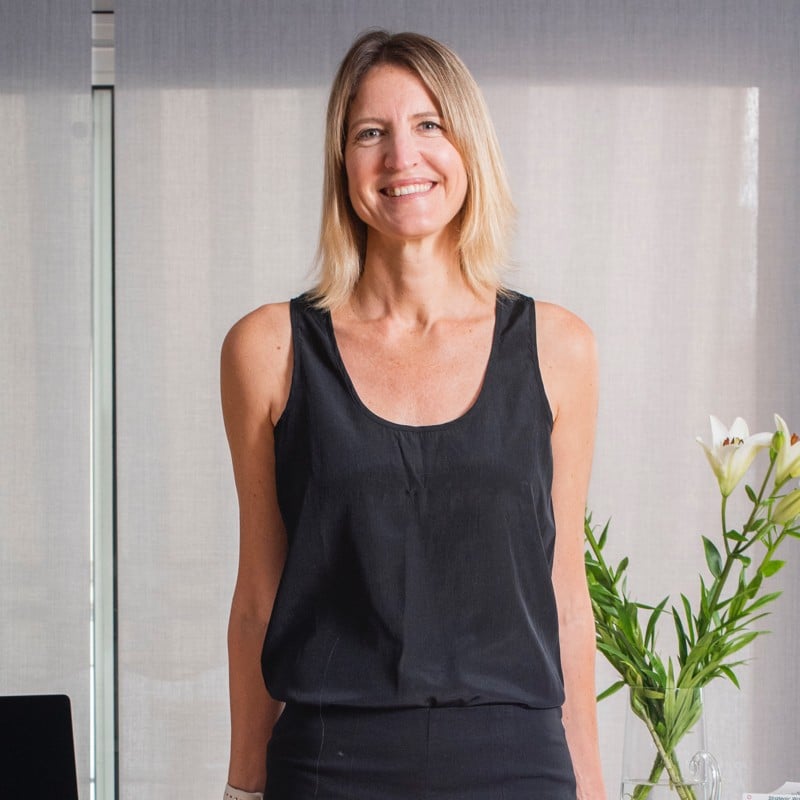Have you ever felt like you returned from your holiday more tired than before you left? That kind of feeling where your body is urgently asking to stop and take a break. Slow tourism is the alternative to impossible itineraries and tours that aim to check off each and every must-see.
It's not about crossing off destinations like a shopping list; it's about savoring the journey, enjoying it like a cup of coffee on a rainy day: slowly but surely.
Table of contents
What is slow tourism?
Slow tourism, or as I like to call it, the ‘stress free' philosophy, is about travelling while enjoying the moment, the place and, above all, the calm. It's like switching from a reggaeton playlist to smooth jazz: you lower the revs and start to appreciate the small things.
Slow tourism is more than just a travel style; it's an attitude. You stop caring about the Wi-Fi connection and instead reconnect with the things that matter, such as relaxing to the sound of the waves, enjoying the irresistible aroma of freshly baked bread in a charming Italian piazza, or the art of dolce far niente (enjoying doing nothing, and doing it well). There is no room for rushing in this travel philosophy. Why rush through Venice when you can leisurely wander along the canals, eat an ice cream and just gaze at the gondolas as they pass by?

Characteristics of slow tourism
What makes slow tourism special?
- Slow pace: No room for tours that feel like an Olympic marathon. Pretend the world is a Netflix series and you're watching the first episode. Don't skip to the end, enjoy the plot.
- Genuine connection: Slow tourism is like going to the local market instead of the supermarket: everything is more fresh, more real and more human. The idea is to share a smile, a chat or even a secret recipe with locals.
- Eco-friendly: This type of tourism says goodbye to plastic bottles and hello to reusable packaging. Let's leave footprints behind us, but not carbon ones.
- Dive into the local culture: Imagine learning to dance flamenco in a small Andalusian village or baking bread with an Italian grandmother.
- Authenticity above all: Slow tourism is like a hidden coffee shop in your neighborhood: a discovery that stays in your heart forever. Avoid the tourist clichés and dare to explore out of the beaten path.
- Connecting with oneself: Slow travel is like therapy on the move. It allows you to reconnect with yourself, listen to your thoughts and, why not?, discover new passions. It's like giving yourself time to breathe.
- Supporting the local economy: By choosing local products and services, your money stays in the local community, helping to keep traditions alive and strengthening the local economy.
- Use of sustainable transportation: Change the plane for the train, the cab for the bicycle or simply walk. Not only will you reduce your carbon footprint, you will discover landscapes and details that would otherwise go unnoticed.
- Flexibility and spontaneity: When you travel without a tight schedule, you can go with the flow. Did you fall in love with a small beach? Stay one more day. Did you find a local festival? Join the party.
- Lower environmental impact: Traveling slowly and consciously not only protects destinations but also ensures that they remain just as magical for future generations.
Benefits of slow tourism
Are there any benefits? Lots of them! Let's review some of them, but there are probably many more:
No more stress - Say ciao to the watch and hola to enjoying the here and now. Don't let a stopwatch run your trip.
Genuine connection with the destination - Instead of photos with weary faces in front of the Eiffel Tower, you'll have stories of chatting with a Parisian baker who gave you his best baguette.
Travel without environmental guilt - It's like swapping your car for a bike: greener, cleaner, and, of course, more enjoyable.
Personal growth - Because, let's face it, learning to make pasta with a nonna in Naples is worth more than any souvenir.
Less is more - Replacing quantity with quality is like going from gobbling down a Big Mac with large fries in the car to enjoying a home-cooked meal in the neighborhood canteen, with time to savor every bite.
Improved mental health - By slowing down, you reduce anxiety and stress, allowing your mind to relax and recharge. This allows you to give your brain a break from the daily chaos.
Building real connections - By interacting more with locals and other travelers, you build genuine relationships that could turn into lasting friendships. There's nothing like expanding your family around the world.
Discovering hidden gems - Leaving the traditional tourist trails offers you the opportunity to find unique places and experiences that few others know about.
Contributing to sustainability - By choosing slower and greener travel options, you help preserve the environment and local cultures.
Developing new skills - Whether by learning to cook a local dish, dance a traditional dance or speak a new language, slow tourism gives you the opportunity to enrich your repertoire of skills.

Examples of this type of tourism
Here are some examples that can serve as a source of inspiration for your next holiday:
- Camino de Santiago (Spain): Forget about running to get to the end. Walk at your own pace, enjoy the landscape, make new friends and, while you're at it, try some Galician food! This route is not just a physical journey, it is an opportunity to disconnect from the world and reconnect with yourself.
- Galicia: If you are looking for a place where time seems to stand still, it's here. With endless forests surrounding tiny villages, charming churches and meandering rivers, Galicia is the perfect haven for slow tourism.
- La Gomera y El Hierro (Canary Islands): In La Gomera, you can walk along trails through forests that look like something out of a movie, but without the special effects and crowds. It is the perfect place to enjoy nature in its most pristine state. In El Hierro, you can find breathtaking volcanic landscapes and crystal-clear waters. Here, time doesn't run; just go at your own pace and enjoy your stay without pressure or stress.
- Island hopping in Greece: There's no need to see all the islands in one day. Choose one, take your time, try the tzatziki in a local restaurant and get mesmerized by sunsets that look as if they were hand-painted.
- Danube Bike Route: Rent a bike and feel like the protagonist of an indie film, riding through charming villages, natural landscapes and experiencing unforgettable moments. No rush, just miles of pure beauty to enjoy with every pedal stroke.
- Retreats at rural houses: Find a lost corner in Scotland, wrap yourself in a blanket, sit by the fireplace and listen to the rain fall softly on the roof. Here, days are longer and worries are shorter.
The influence of slow tourism in the hotel industry
When it comes to slow tourism, hotels are keeping the pace, and many are already integrating this spirit into their services. Nowadays, luxury is not measured in terms of a minibar with bottles of liquor and gold-priced chocolates, but in terms of meaningful experiences. From accommodations committed to sustainability and equipped with solar panels and their own vegetable gardens, to hotels that invite you to immerse yourself in the local culture with activities such as learning to cook paella in Valencia or painting pottery in Portugal. Furthermore, they offer spaces designed to really unwind, with rooms so cozy and minimalist that they feel like they were created by Marie Kondo: clean, tidy and with views that invite you to relax.
And not only that, they are also focused on flexibility with check-outs that don't force you to get up early and breakfasts that don't end at 10:00, because here the guest is the boss and there's no room for rushing.
Conclusion
Slow tourism is not only a way of traveling, it is the answer to a world that goes too fast. So, on your next holiday, give yourself a break and travel more slowly. Because, in the end, the best memories are not measured in kilometers travelled, but in moments enjoyed.

Author
Agustina Lagos
After 25 years working in hotels, Agustina now lends her expertise to the world of hospitality copy. When she's not crafting copy, she's travelling at any cost. And with her trusty pup Bruna by her side, she's always on the go, no matter the exhaust!

Essential hotel technology for general managers
Download now
Hospitality hot takes straight to your inbox


.webp)